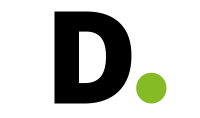In 2025, the landscape of Human Resources (HR) is undergoing a radical transformation powered by artificial intelligence (AI). From automating mundane tasks to improving talent acquisition and employee engagement, AI tools have become indispensable for modern HR teams. These solutions not only streamline operations but also enable data-driven decision-making, enhance employee experiences, and reduce operational costs.
If you’re looking to modernize your HR department and gain a competitive edge, here are the 10 best AI tools for HR automation in 2025 that you should consider:
1. Zoho People
Overview:
Zoho People is a robust HR software solution suitable for SMEs looking for scalable automation. In 2025, Zoho’s AI has become smarter, offering tools that predict employee burnout, improve engagement, and automate time-consuming HR processes.
Key Features:
- AI-based employee sentiment analysis
- Smart shift scheduling
- Auto-generated performance insights
- Automated onboarding workflows
- Facial recognition-based attendance system
Best For: Small to medium-sized businesses wanting a budget-friendly yet powerful HR automation tool.
2. BambooHR
Overview:
BambooHR is known for its user-friendly interface and powerful automation tools tailored for growing companies. In 2025, its AI features enhance performance tracking and employee engagement.
Key Features:
- AI-generated performance report
- Smart goal setting and tracking
- Automated time-off approvals
- Predictive employee turnover alerts
- Self-service employee portals
Best For: SMBs seeking intuitive, lightweight HR automation with strong performance management features.
3. Lattice
Overview:
Lattice is a performance and employee success platform enhanced by AI. It helps HR teams and managers align goals, assess performance, and retain top talent through smart analytics.
Key Features:
- AI-driven performance review suggestions
- Real-time feedback loops and engagement analytics
- Predictive retention insights
- Career development tracking
- Goals and OKRs alignment tools
Best For: Companies focused on employee development, feedback, and performance optimization.
4. Paradox (Olivia)
Overview:
Paradox is known for its conversational AI assistant, Olivia, which handles recruiting tasks such as screening, scheduling, and answering candidate questions — all via natural language processing.
Key Features:
- Conversational AI recruiting assistant
- Automated interview scheduling
- Mobile-first candidate engagement
- Instant responses to candidate queries
- ATS and calendar integrations
Best For: High-volume recruiting teams looking to automate repetitive communication tasks.
5. Workday
Overview:
Workday continues to be a leader in the HR tech space with its AI-driven Human Capital Management (HCM) system. Designed for large and mid-sized organizations, Workday’s AI features enhance decision-making across talent acquisition, performance management, and workforce planning.
Key Features:
- AI-powered talent analytics and succession planning
- Predictive retention risk modeling
- Automated payroll and benefits administration
- Personalized employee learning paths
- Chatbot for real-time HR support
Best For: Enterprise-level businesses needing an all-in-one HR platform with advanced AI analytics.
6. HireVue
Overview:
HireVue revolutionizes the hiring process with its AI-powered video interview and assessment technology. It’s especially effective in high-volume recruiting environments where screening speed and quality are crucial.
Key Features:
- AI-driven video interview analysis
- Predictive analytics to assess candidate fit
- Gamified pre-employment assessments
- Automated scheduling and interview reminders
- Bias-mitigation algorithms
Best For: Organizations focusing on high-volume hiring and candidate experience optimization.
7. Leena AI
Overview:
Leena AI is an HR automation assistant that uses generative AI to automate employee query management, HR help desk, and onboarding. In 2025, its conversational capabilities are among the most human-like in the industry.
Key Features:
- AI HR chatbot for instant query resolution
- Auto-generates HR documents and FAQs
- Employee pulse surveys and analytics
- Voice-enabled interfaces
- Seamless integration with HRIS platforms
Best For: Businesses aiming to reduce HR service tickets and enhance internal communication.
8. Eightfold AI
Overview:
Eightfold AI is a powerful talent intelligence platform that leverages deep learning to match candidates with roles, develop career paths, and ensure DEI compliance in recruitment.
Key Features:
- Talent matching with 1B+ global profiles
- Diversity and bias-aware candidate scoring
- Career pathing and skill development insights
- Internal mobility optimization
- Predictive talent acquisition planning
Best For: Companies prioritizing workforce diversity, upskilling, and predictive hiring strategies.
9. Recruitee
Overview:
Recruitee is a collaborative recruitment platform that integrates AI to improve sourcing, screening, and pipeline management. It’s built with usability in mind, making it ideal for scaling teams.
Key Features:
- AI candidate matching and ranking
- Automated job posting and ad optimization
- Smart scheduling tools
- Recruitment analytics dashboard
- Collaborative hiring workflows
Best For: Startups and mid-size companies scaling their hiring processes quickly.
10. Turing
Overview:
Turing combines AI with global talent sourcing to help companies hire pre-vetted remote software developers. It uses AI to match employers with developers who are tested for both skill and fit.
Key Features:
- AI-based global talent matching
- Automated vetting and technical assessments
- Skill-gap analysis
- Remote team management tools
- 24/7 talent sourcing engine
Best For: Tech companies hiring remote developers and looking for automated global talent acquisition.
Why Invest in AI HR Tools in 2025?
Here are a few compelling reasons businesses are rapidly adopting AI in their HR functions:
- Increased Efficiency: Automating repetitive tasks like resume screening, interview scheduling, and query handling reduces HR workload by up to 40%.
- Improved Decision-Making: AI tools offer predictive insights, such as attrition risk and candidate quality, leading to better hiring and retention strategies.
- Enhanced Employee Experience: Tools like Leena AI and BambooHR personalize employee interactions, improving engagement and satisfaction.
- Compliance and DEI: AI platforms can help monitor compliance and improve diversity by removing unconscious bias from hiring processes.
Key Features to Look for in AI HR Tools
When choosing the right AI-powered HR software, consider the following features:
- Integration Capabilities: Ensure compatibility with existing HRIS or payroll systems.
- Scalability: Opt for solutions that grow with your organization’s needs.
- User Interface: A clean and intuitive UI is crucial for both HR teams and employees.
- Data Security: Look for compliance with standards like GDPR, SOC 2, or ISO 27001.
- Support and Training: Reliable customer support and onboarding resources will speed up adoption.
Final Thoughts
The future of HR lies in leveraging AI not just to reduce manual workloads, but to empower smarter, faster, and more inclusive decision-making. Whether you’re a startup building your first hiring team or an enterprise looking to streamline HR operations across global offices, these AI tools for HR automation in 2025 offer tangible benefits that translate into real business impact.
Adopting one (or more) of these platforms can elevate your HR strategy and help you stay ahead in a talent-driven market.
FAQs About AI Tools for HR Automation in 2025
1. What are AI tools for HR automation?
AI tools for HR automation are software solutions that use artificial intelligence technologies—such as machine learning, natural language processing, and predictive analytics—to automate repetitive HR tasks like recruitment, onboarding, performance tracking, and employee engagement.
2. How can AI improve the hiring process?
AI can significantly streamline hiring by automating resume screening, ranking candidates based on fit, conducting initial video interviews with sentiment analysis, and even scheduling interviews. This not only saves time but also reduces bias and improves candidate quality.
3. Are AI HR tools suitable for small businesses?
Yes. Many AI HR tools, like Zoho People and BambooHR, are designed specifically for small to mid-sized businesses. They offer scalable plans that are affordable and easy to implement, without requiring a large IT team.
4. Can AI in HR help reduce employee turnover?
Absolutely. AI tools like Lattice and Eightfold AI use predictive analytics to identify employees at risk of leaving, allowing HR teams to take proactive steps such as initiating development programs, conducting stay interviews, or revisiting compensation strategies.
5. Is employee data safe with AI HR software?
Top AI HR tools follow stringent data security protocols, often including compliance with GDPR, SOC 2, or ISO 27001 standards. Always choose vendors with transparent data policies and robust encryption to ensure your employee data is protected.
6. How do AI HR tools support diversity and inclusion?
AI tools can help reduce unconscious bias by anonymizing candidate data during early screening, using objective scoring systems, and providing DEI analytics. Platforms like HireVue and Eightfold AI are designed with fairness and compliance in mind.














